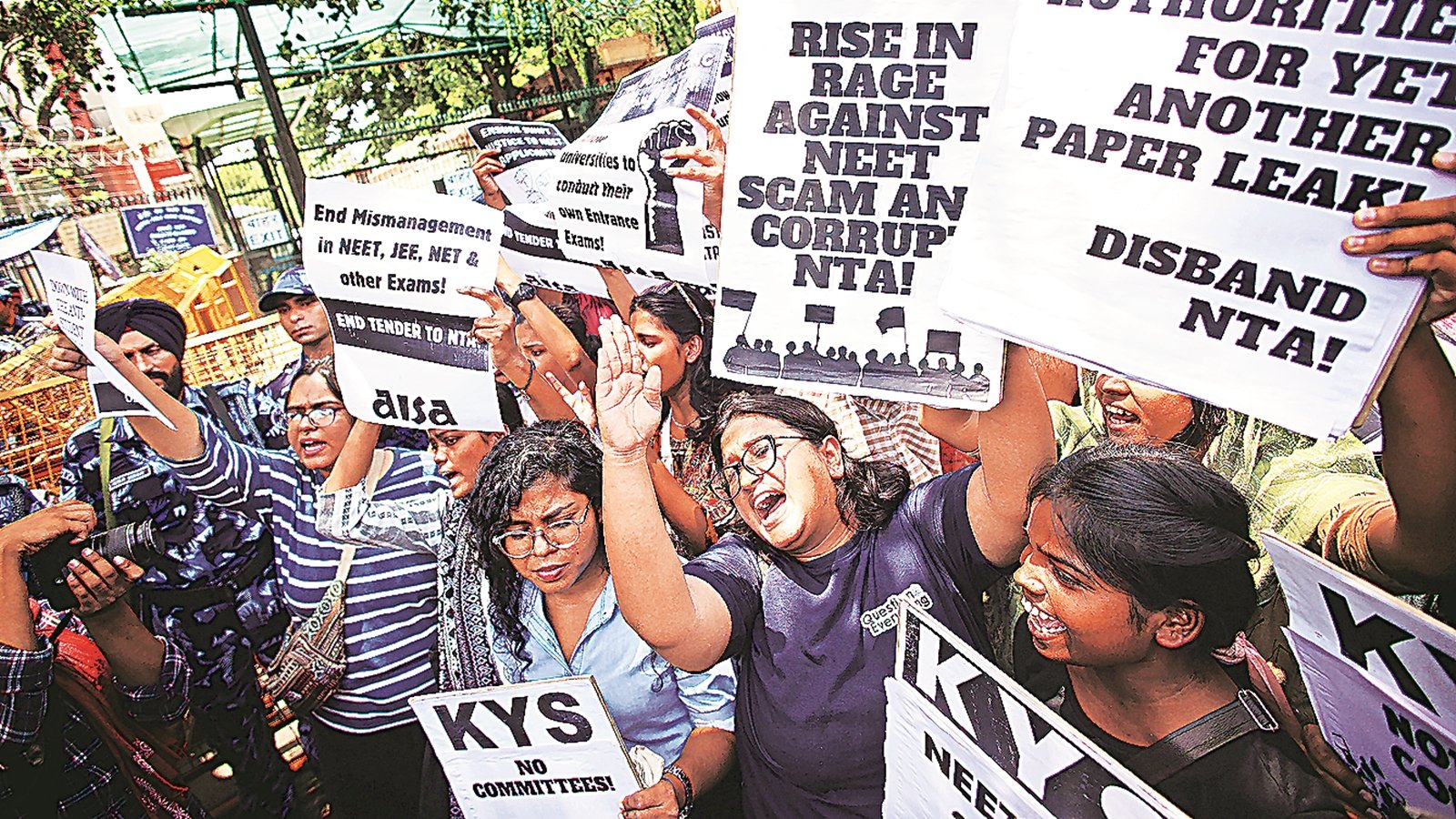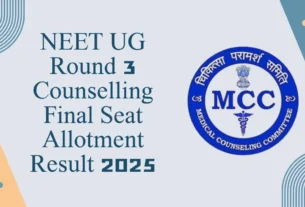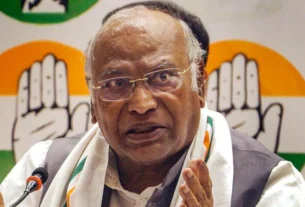NEET-UG 2024 Controversy : The National Eligibility cum Entrance Test for Undergraduate (NEET-UG) 2024 is a highly significant examination for medical aspirants in India. It serves as the primary gateway for students seeking admission into undergraduate medical courses such as MBBS and BDS across various colleges in the country. Due to its importance, the examination is marked by rigorous standards and a high level of competition, with thousands of students vying for a limited number of seats.
Ayushi Patel, one of the many aspirants, recently found herself embroiled in a controversy regarding her NEET-UG 2024 examination. Patel’s complaint centers around what she describes as a ‘torn OMR sheet’. The Optical Mark Recognition (OMR) sheet is a critical component of the NEET-UG examination process, as it is used to record the candidate’s answers. The integrity of this sheet is paramount because any damage to it can potentially affect the accurate scoring of a student’s responses, thereby impacting their overall results and future prospects in medical education.
Read More : NEET-UG 2024 Controversy
The controversy began when Ayushi Patel filed a plea in the Allahabad High Court, alleging that her OMR sheet was torn and thus, her examination results were compromised. This plea prompted the involvement of the National Testing Agency (NTA), the body responsible for conducting the NEET-UG 2024 Controversy examination. Patel’s case garnered significant attention, given the high stakes involved for medical aspirants.
In response to the plea, the NTA presented the original OMR sheet in the court, asserting that the sheet was intact and devoid of any damage. This move was crucial in the defense of the NTA’s examination process and integrity. The initial stages of this controversy highlighted the critical role of the OMR sheet in ensuring fair and accurate assessment of candidates. The ensuing legal battle underscored the importance of transparent and robust examination procedures, especially in high-stakes tests like the NEET-UG 2024 Controversy.
Court Proceedings and Final Verdict
The case of Ayushi Patel’s alleged torn OMR sheet reached the Allahabad High Court, drawing significant attention. Ayushi Patel, along with her legal team, argued that the OMR sheet she submitted during the NEET-UG 2024 examination was torn, which they claimed adversely affected her results. They contended that the damage to the OMR sheet led to misinterpretation of her answers, thereby unfairly lowering her score. Patel’s legal representatives sought a re-evaluation of her examination or, alternatively, the consideration of her results based on the scanned copy of the OMR sheet presented during the exam.
In response, the National Testing Agency (NTA) presented their counterarguments. The NTA, responsible for conducting the NEET-UG 2024 examination, asserted that all OMR sheets are securely handled and scanned immediately after the test to prevent any tampering. To substantiate their claim, the NTA presented the original, untorn OMR sheet submitted by Ayushi Patel. This original document was produced as evidence to demonstrate that the integrity of the examination process had been maintained and that no such damage had occurred.
After thorough examination of the arguments and evidence provided by both sides, the Allahabad High Court delivered its verdict. The court dismissed Ayushi Patel’s plea, citing the lack of tangible proof to support the claim that her OMR sheet was torn and thereby affected her results. The court acknowledged the NTA’s presentation of the original, untorn OMR sheet as a critical piece of evidence, underscoring the credibility and robustness of the examination process employed by the NTA.
The dismissal of Ayushi Patel’s plea has several implications. For Ayushi, it means accepting the original results as final, impacting her prospects for medical college admission. For other NEET-UG 2024 candidates, the judgment reinforces the importance of the integrity and security measures in place during the examination process. It also highlights the judiciary’s role in upholding the fairness of standardized tests, ensuring that the examination process remains transparent and reliable for all candidates.





